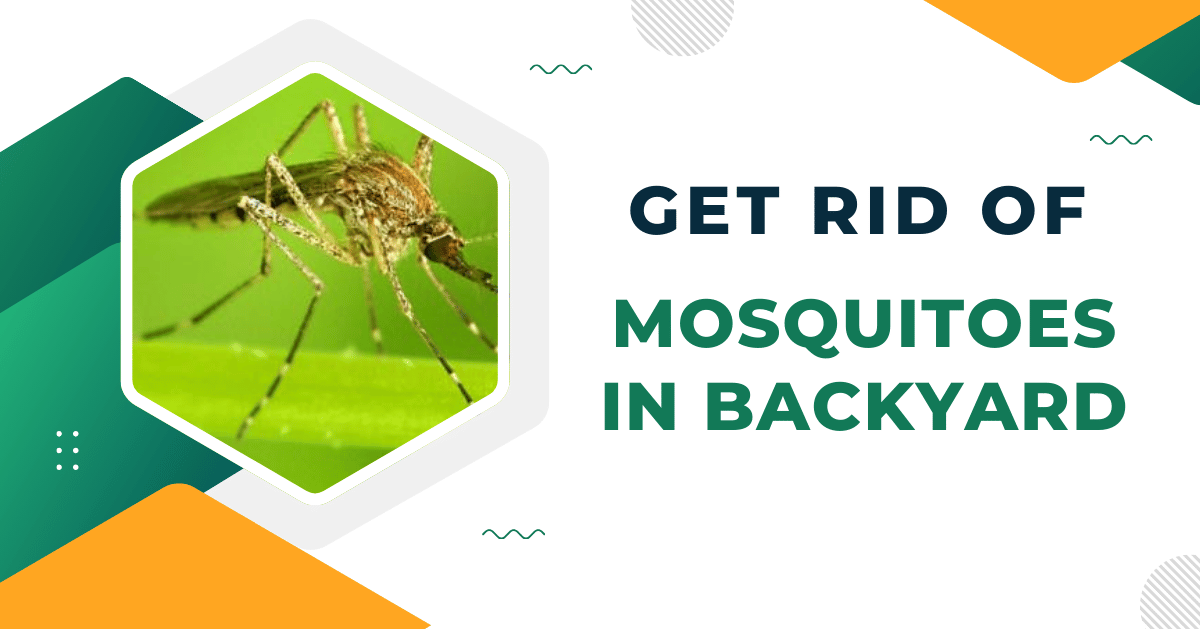Mosquitoes are a common problem in many backyards. They breed in standing water and can become a nuisance during warm months. Their bites can cause itching and discomfort, and they can spread diseases like West Nile virus and Zika virus. Managing mosquitoes is important to avoid these health risks and make your outdoor space more enjoyable.
Addressing mosquitoes helps protect your family and pets from potential illnesses. By taking steps to control their population, you can reduce the chances of being bitten and create a more pleasant environment for outdoor activities. Simple actions, like removing standing water and using repellents, can make a big difference.
Table of Contents
Prevention Strategies
To keep mosquitoes away, start by eliminating standing water where they lay eggs. Check and empty birdbaths, gutters, and containers like buckets, old tires, and plant saucers at least once a week. For larger water features, consider using mosquito dunks, which release bacteria that target mosquito larvae but are safe for other wildlife.
Maintain a clean yard by regularly mowing your lawn and removing debris like fallen leaves and branches. Mosquitoes tend to hide in tall grass and piles of organic matter, so keeping your yard well-maintained helps reduce their resting places.
Plant mosquito-repellent plants such as citronella, lavender, marigolds, and basil around your yard. These plants produce natural oils that repel mosquitoes. Additionally, consider using mosquito-repellent sprays or candles in outdoor living areas to provide extra protection.
Physical Barriers
To keep mosquitoes out of your outdoor spaces, consider installing physical barriers. One effective option is mosquito netting, which can be used to cover patios, porches, or outdoor dining areas. This mesh allows airflow while keeping mosquitoes out.
Mosquito traps and zappers are another useful tool. Traps attract mosquitoes using light or carbon dioxide and capture them, while zappers use electric grids to kill them on contact. Place these devices strategically around your yard to reduce mosquito numbers.
For added protection, use mosquito-repellent screens on windows and doors to prevent them from entering your home. Ensuring that screens are in good repair and free of holes helps keep mosquitoes out.
Chemical Solutions
To effectively manage mosquito populations, you can use various chemical solutions designed to target and reduce mosquitoes.
Insecticides
These chemicals kill mosquitoes either on contact or through ingestion. Options include outdoor sprays and foggers. For large areas, use a fogger to disperse the insecticide evenly over your yard. When using sprays, focus on areas where mosquitoes rest, such as shaded or grassy spots. Follow all label instructions carefully to ensure proper application and safety. Consider choosing insecticides that are effective against the specific mosquito species in your area. Also, avoid using these products during peak mosquito activity times, like early morning or late evening, to minimize exposure.
Repellents
Mosquito repellents are available as sprays, lotions, and even wearable bands. Common active ingredients include DEET, picaridin, or oil of lemon eucalyptus. DEET is widely recognized for its effectiveness and can provide several hours of protection. Picaridin is a good alternative with a less greasy feel. Apply repellents to exposed skin and clothing, and reapply as needed, especially if you’re sweating or swimming. For longer-lasting protection, treat clothing with permethrin-based products. Always follow application guidelines and avoid applying these chemicals near the eyes and mouth.
Natural and Eco-Friendly Solutions
Using these natural and eco-friendly solutions can help you manage mosquitoes while minimizing the impact on the environment and promoting a healthier outdoor ecosystem.
Essential Oils and Natural Repellents
Certain essential oils are known to repel mosquitoes. Oils such as citronella, lavender, eucalyptus, and peppermint can be used in various forms, including sprays, diffusers, or candles. You can make your own mosquito repellent spray by mixing essential oils with water and a carrier oil, like coconut or olive oil. These natural repellents are effective but may need to be reapplied more frequently than chemical repellents.
Encouraging Natural Predators
Attracting mosquito predators to your yard can help control mosquito populations. Birds, bats, and dragonflies are natural predators of mosquitoes. Install birdhouses or bat houses to encourage these animals to visit your yard. Additionally, creating a habitat for dragonflies, such as a small pond with aquatic plants, can attract them and help keep mosquito larvae in check.
Biological Control
Introduce natural mosquito larvae predators, such as certain types of fish or insects, to water features in your yard. Gambusia fish (also known as mosquito fish) and predatory beetles can help reduce mosquito larvae populations. Make sure to research and select species that are appropriate for your local environment and safe for other wildlife.
Maintenance and Monitoring
To effectively manage mosquito populations, ongoing maintenance and monitoring are crucial.
Regular Yard Inspections
Routinely check your yard for new sources of standing water, such as in plant saucers, birdbaths, or gutters. Even small amounts of water can serve as breeding grounds for mosquitoes. Empty or treat these water sources promptly to prevent mosquitoes from laying eggs.
Seasonal Considerations
Mosquito activity often varies with the seasons. In warmer months, mosquitoes are more active, so increase your vigilance and mosquito control measures during this time. As temperatures drop, mosquitoes may become less of a problem, but continue to monitor and address any potential breeding sites.
Adjusting Strategies
Be prepared to adjust your mosquito control strategies based on observed effectiveness. If you notice increased mosquito activity, consider using additional methods or increasing the frequency of treatments. Keeping track of mosquito activity and any changes in your yard can help you respond more effectively.
FAQs
Q. How often should I use mosquito repellent?
Apply mosquito repellent as directed on the product label, usually every few hours or as needed, especially if you’re sweating or swimming.
Q. Can I use mosquito control methods if I have pets?
Yes, but be cautious. Choose pet-safe products and avoid applying insecticides where pets play. Consult your vet for specific recommendations.
Q. What are the most common mosquito-borne diseases?
Common mosquito-borne diseases include West Nile virus, Zika virus, and dengue fever. Protect yourself to reduce the risk of these illnesses.
Q. Are there any home remedies to repel mosquitoes?
Yes, home remedies include using garlic, vinegar, or baking soda in certain mixtures. However, their effectiveness may vary.
Q. How can I prevent mosquitoes from coming inside my home?
Use screens on windows and doors to keep mosquitoes out. Ensure there are no gaps or holes where they can enter.
Conclusion
Effectively managing mosquitoes in your backyard involves a combination of strategies. Start by eliminating standing water where mosquitoes breed. Maintain a clean yard, use physical barriers like netting and traps, and consider chemical solutions for targeted control. Natural methods, such as using essential oils and encouraging mosquito predators, can also be effective and eco-friendly.
Regular maintenance and monitoring are key to long-term success. Check your yard frequently for new breeding sites and adjust your control methods as needed. By following these steps, you can significantly reduce mosquito activity and create a more enjoyable outdoor space.



